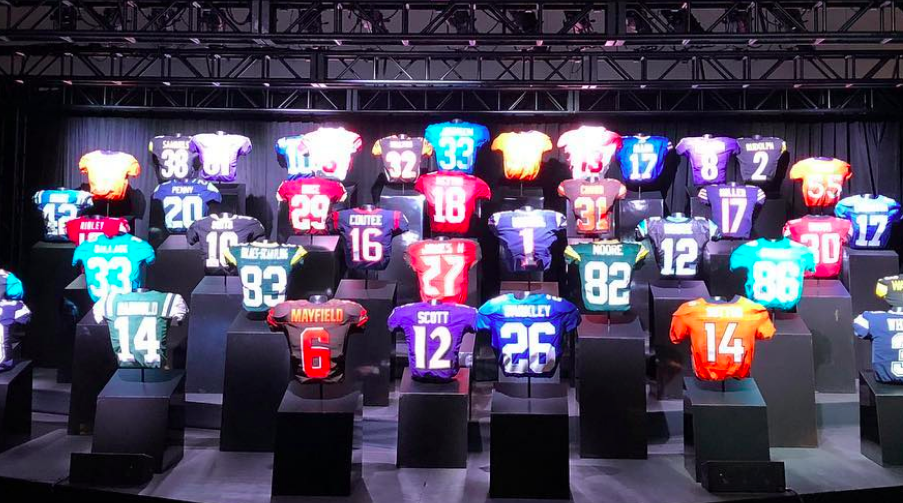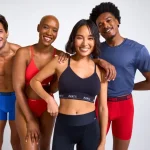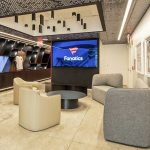Mirroring the company’s upcoming MLB partnership with Under Armour, Fanatics secured the rights to make NFL jerseys and related merchandise under the Nike logo.
Beginning in 2020 under a 10-year partnership, NFL’s owners agreed to split the rights to sell Nike’s merchandise between two companies instead of one:
- Nike will remain the exclusive on-field supplier for uniforms, base layer and sideline apparel for all 32 NFL teams, with the exception of headwear, with the focus on players and coaches.
- Fanatics will gain exclusive product licensing rights to manufacture and distribute all Nike NFL adult products: authentic and replica jerseys, warm-ups, championship t-shirts, etc., that will be sold through the retail community, with focus on fans.
Fanatics runs NFL.com and will sell the merchandise through that website as well as the company’s own sites, Fanatics.com and Fansedge.com. Fanatics will also sell the Nike-logoed product to wholesale partners such as Dick’s Sporting Goods, Modell’s, Foot Locker and Academy.
The arrangement is similar to the deal Fanatics hatched in 2016 that will see Under Armour produce on-field merchandise once Majestic Athletic and Nike finish their current licensing agreement in 2020. At that time, Fanatics will make the MLB merchandise that will be sold to fans under the Under Armour label.
The move comes as Fanatics has made significant investments in the company’s vertical-manufacturing model, including recently hiring Joe Bozich, founder of Knights Apparel, as the first ever COO of Fanatics Brands, the company’s in-house apparel division.
Fanatics began building an in-house, tech-infused vertical manufacturing model earlier in the decade, in large part to more quickly respond to “hot market” opportunities. The May 2017 acquisition of Majestic from VF Corp. then significantly expanded manufacturing, distribution and wholesale capabilities. But in an interview last week with SGB, Fanatics Brands President Raphael Peck said Fanatics’ internal manufacturing capabilities have become more important as the company has secured additional rights to manufacture fan apparel with all of the major sports leagues, plus MLS.
“When we think about a platform for growth, first and foremost we have an incredible set of rights that we now need to executive on,” said Peck. “We’re in the midst of an integration from our single largest acquisition that we made nearly a year ago, and it’s time to really bolster my management team with a complete commitment to verticality.”
For the NFL, aligning with Fanatics on fan rights promises to significantly expand revenues.
Fanatics is seen having a better capacity to respond quicker than Nike to make more jerseys, celebration t-shirts and other items on demand and that’s particularly important in responding to “hot market” opportunities, or big wins. The faster response can also help better manage inventory risk with the shift toward greater on-demand production.
“Our goal is to give the fan what they want when they want it; that will net in a higher sales base in a few years,” Michelle Micone, SVP for consumer products at the NFL, told the New York Times.
Fanatics is also expected to roll out a wider assortment of products than is now available from Nike.
With the combination of speed and distribution capabilities, Fanatics also promises to better support sales of Fanatics-branded apparel as well as apparel from companies other than Nike. Replacing Nike, Fanatics will control the distribution of licensed NFL Nike merchandise to other vendors, according to ESPN.
Said Micone in a statement, “By emphasizing the strengths of both Nike and Fanatics, we have a model that gives us the ability to offer superior on-field products to the teams and the nimbleness to serve the increasingly real-time expectations of today’s fans, who have more control over their choices.”
The new deal also promises to increase overall margins. Fanatics will pay the NFL a percentage of the wholesale price of merchandise the company distributes through retailers, while also providing a cut of the retail price for all items the company sells directly to consumers through NFL.com, Fanatics.com and Fansedge.com.
“With technology, mobile and social media all contributing to a surge in real-time expectations, it’s exciting to team up with like-minded partners in the NFL and Nike, who are equally enthusiastic in rolling out a new model for this industry that best serves the fans, retailers, players and the league,” said Gary Gertzog, president, business affairs for Fanatics, in a statement. “Our vertical structure will allow us to reach more fans and retailers with a wider assortment of merchandise, which is consistently stocked and replenished.”
Nike still gains a royalty and sees the company’s names played on NFL playing fields while exiting the NFL licensed production business that requires a quick-turnaround capacity that Fanatic’s emerging wholesale model is being built to embrace.
In 2010, Nike replaced Reebok as the exclusive merchandise provider of N.F.L. goods. In March, the NFL extended Nike’s rights to produce on-field gear through 2028.
Photo courtesy Fanatics
















